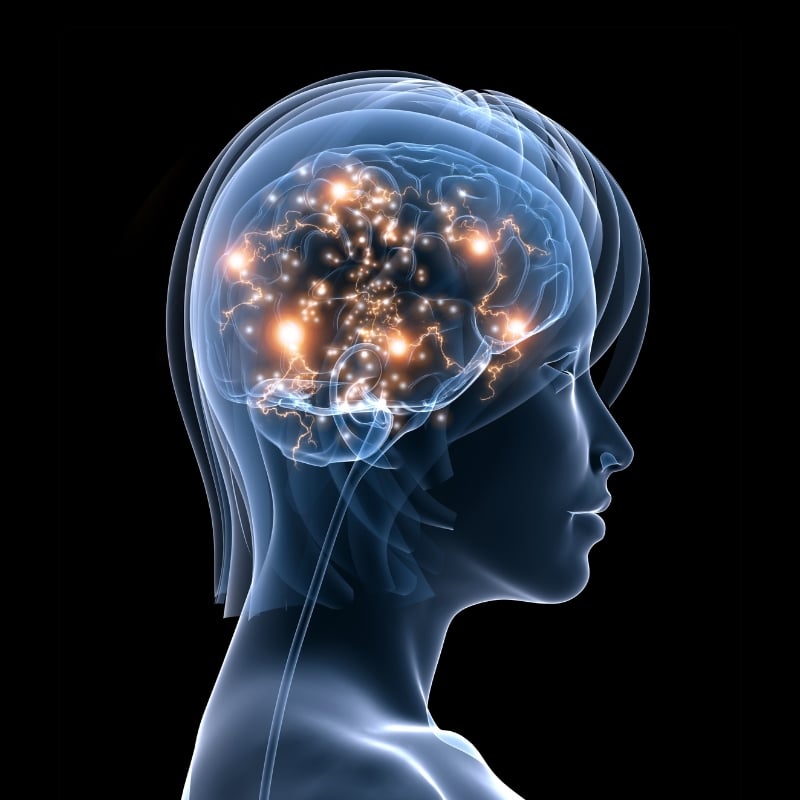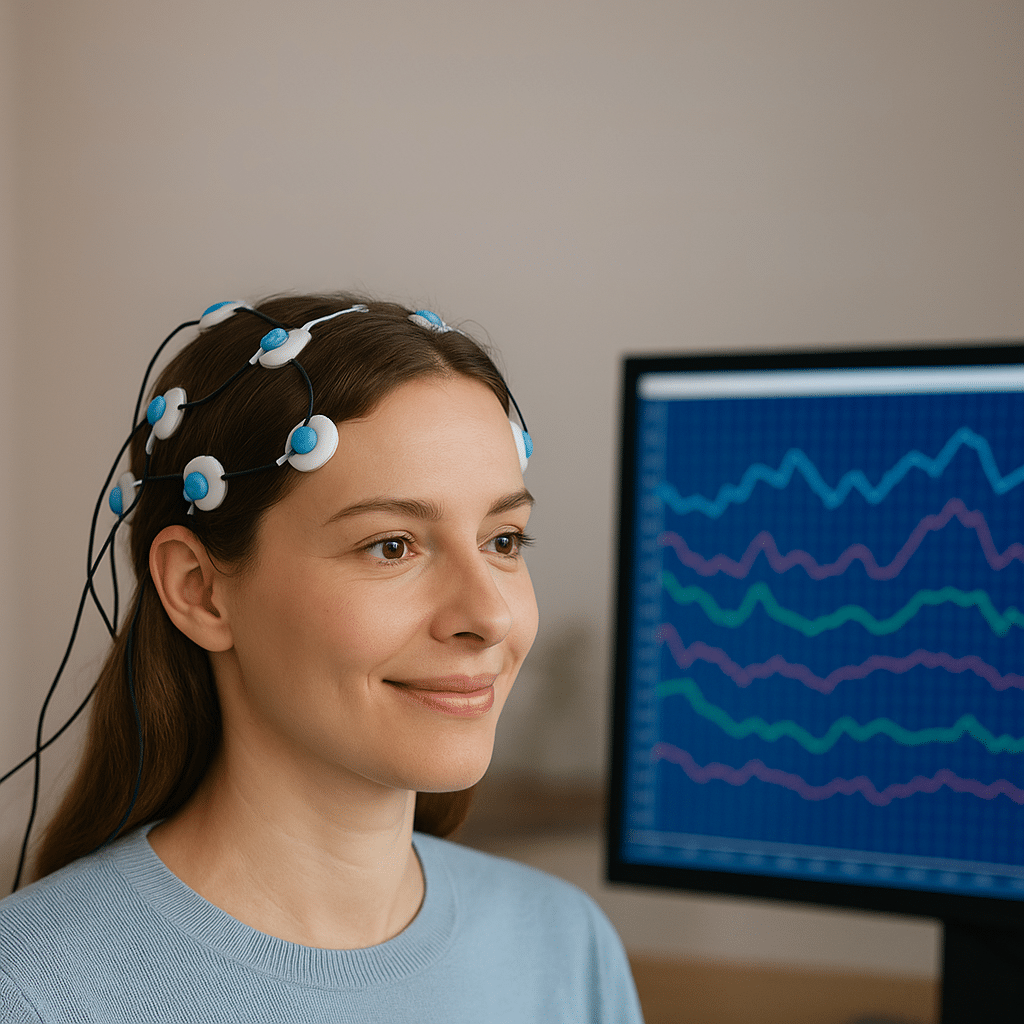Mental health treatment is not a one-size-fits-all solution. Many individuals who struggle with depression, anxiety, or other mental health conditions have experienced limited success with traditional options like medications and psychotherapy. For some, these treatments either do not work or come with intolerable side effects.
Transcranial Magnetic Stimulation (TMS) offers a new way forward. But how can you tell if this innovative therapy is the right choice for you? This blog dives deep into the criteria for TMS eligibility, the conditions it treats, and why it is gaining popularity as a noninvasive alternative for mental health treatment.
What Is TMS, and How Does It Work?
Transcranial Magnetic Stimulation (TMS) is a noninvasive therapy that activates nerve cells in the brain using targeted magnetic pulses. This treatment targets specific regions of the brain associated with mood regulation, such as the prefrontal cortex, which is often underactive in individuals with depression. Think of TMS as physical therapy for the brain—it helps retrain neural pathways to function more effectively.
In a TMS session, a magnetic coil is positioned on the scalp, emitting electromagnetic pulses that stimulate specific brain regions associated with mood, behavior, and mental clarity. The treatment is performed in an outpatient setting, and each session typically lasts 30 to 60 minutes. Most patients require five sessions per week for four to six weeks.
Who Is a Good Candidate for TMS?
TMS has become a promising treatment for individuals who have not found relief through traditional mental health therapies. However, it is not for everyone. To determine if you are a good candidate, it is essential to understand the specific criteria for eligibility.
You May Be a Good Candidate for TMS If:
- You have been diagnosed with Major Depressive Disorder (MDD): TMS is FDA-cleared for treating MDD, especially for people with treatment-resistant depression. This means that if your depression has not improved despite trying other therapies, TMS could be an option. It targets underactive areas of the brain linked to mood regulation, helping to restore balance and relieve symptoms.
- You have tried medications without success: Research shows that individuals who have failed two or more antidepressant trials may benefit greatly from TMS. Many patients turn to this therapy after medications have provided little to no relief. Others might have experienced initial improvement with antidepressants, but their symptoms later returned.
- You cannot tolerate medications: Some people find that antidepressants come with side effects that are hard to manage, such as nausea, drowsiness, weight gain, or sexual dysfunction. For others, medical conditions or allergies make taking medication impossible. TMS offers an alternative that avoids systemic side effects because it focuses on the brain without involving the rest of the body.
- Your symptoms significantly interfere with daily life: Depression and anxiety can disrupt your ability to work, maintain relationships, or even handle basic responsibilities. If these challenges are constant and overwhelming, TMS could provide relief by targeting the root causes in the brain.
You May Not Be a Candidate for TMS If:
- You have implanted metallic devices in or near your head (excluding dental fillings): Devices such as cochlear implants, deep brain stimulators, or metal fragments from surgery can interfere with the magnetic pulses used during TMS.
- You have a history of seizures or epilepsy: Although rare, TMS does carry a slight risk of triggering seizures. For individuals with uncontrolled seizure disorders, the risks may outweigh the benefits.
- You have other severe neurological conditions or brain injuries: Conditions such as brain tumors or advanced neurological disorders may complicate treatment. These situations require thorough evaluation to determine the best course of action.
What Conditions Can TMS Treat?
While TMS is best known for treating depression, its uses extend beyond mood disorders. Below are some of the conditions that TMS has been shown to improve, based on studies and clinical data:
- Depression: TMS was FDA-approved for MDD in 2008.
- Obsessive-Compulsive Disorder (OCD): Since 2018, TMS has been cleared to help individuals with OCD, targeting brain circuits linked to compulsive behaviors.
- Anxiety Disorders: A meta-analysis published in 2019 revealed that TMS has a large effect size for improving Generalized Anxiety Disorder (GAD), making it a promising option for those who do not respond to therapy or medication.
- Post-Traumatic Stress Disorder (PTSD): TMS can help regulate hyperarousal and reduce intrusive thoughts in PTSD patients.
- Neurological Disorders: TMS is being explored for conditions like Parkinson’s disease, multiple sclerosis, and stroke recovery. A 2017 study found that repetitive TMS (rTMS) improved swallowing in dysphagia patients post-stroke.
What Are the Risks and Side Effects?
Unlike medications, which can cause widespread side effects, TMS primarily affects the brain area being targeted. Common side effects include mild headaches, lightheadedness, and scalp discomfort during or after treatment. These effects are generally short-lived and resolve on their own.
Serious side effects like seizures are exceedingly rare, occurring in less than 0.1% of cases. For most patients, the benefits of TMS far outweigh the risks
What Should You Expect During Treatment?
The TMS treatment process is straightforward and convenient. Here is what a typical session looks like:
- Preparation: You will sit comfortably in a chair while the technician positions the magnetic coil on your head.
- Stimulation: Gentle magnetic pulses are delivered to the targeted brain area. Many patients describe the sensation as a light tapping on the scalp.
- Relaxation: You can read, listen to music, or even nap during the session. There is no need for anesthesia, and you can resume normal activities immediately after treatment.
Is TMS Right for You?
Deciding whether TMS is the right treatment for you depends on your medical history, current symptoms, and past experiences with traditional therapies. TMS offers hope for individuals who feel stuck after trying medications or talk therapy without success.
If you are curious about how TMS could help you or a loved one, the team at Zeam Health & Wellness is here to guide you. Contact us today to schedule a consultation and find out if this innovative treatment is right for you. Let us help you take the first step toward a brighter, healthier future.




